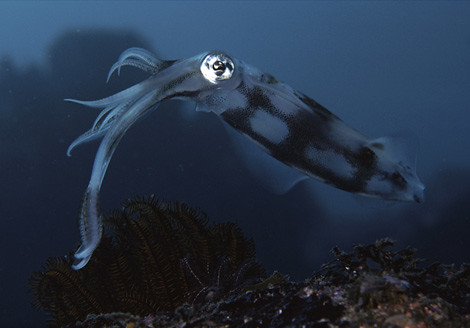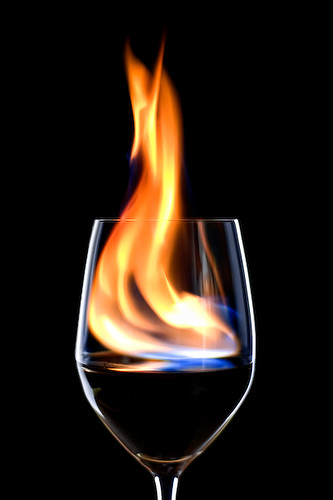I wanted the title to be "ÍslensKos: The Icelandic Language, Or, What's So Scary About The Word Vaðlaheiðarvegavinnuverkfærageymsluskúraútidyralyklakippuhringur?", but Daily Kos apparently can't handle that ;)
This is my second diary on the subject of the Icelandic language, the previous being here. I figured I could use a change of pace on diaries and felt like doing something educational, as well as addressing the sheer-panic most native English speakers get when looking at a long word in another language. By the end of this diary, I'll have you looking at long words in Icelandic and seeing that they're not really that tricky - promise! :) Also, we'll get into some of the fun idiomatic compound words you find in Icelandic.
But first, the scary stuff!

Let's say you saw a word in English you were unfamiliar with that looked like:
Hipwader-Moor'sroadwork'stools'storageshed'sfrontdoor'skeychain'sring
I bet you it didn't take you long to read it, right? Well, that's literally what vaðlaheiðarvegavinnuverkfærageymsluskúraútidyralyklakippuhringur means. The difference in how the English equivalent doesn't look scary but the Icelandic version does is simply due the difference whether you know the component words and, more importantly, being accustomed to how words end/begin and what letter combinations are normal within a word.
There is no shortage of long Icelandic words - landbúnaðarframleiðsla, hæstaréttarmálaflutningsmaður, fjárfestingarfyrirtæki, byggingarverkfræðingur, etc will all get you thousands of hits on Google. But let's look at vaðlaheiðarvegavinnuverkfærageymsluskúraútidyralyklakippuhringur again. While this is a word often cited as the longest word in the Icelandic language, it is in fact just a coined word to show the lack of limits on how long Icelandic words can get. It is based on an actually-sighted word of not-insignificant length, vaðlaheiðarverkfærageymsluskúr, meaning "a toolshed at Vaðlaheiði", or to break it down more, "Hipwader-Moor tool storage shed". The longer coined variant breaks down as:
Vaðla (from vöðlur): hipwaders
Heiðar (from heiði): moor (think "heath")
Vega (from vegur): road (think "way")
Vinnu (from vinna): job
Verk (from verk): project (think "work")
Færa (from færa): move (think "ferry")
Geymslu (from geymsla): storage
Skúra (from skúr): shed
Úti (from úti): outdoors (think "out")
Dyra (from dyr): door (think "door")
Lykla (from lykill): key
Kippu (from kippa): bundle or string of objects
Hringur (from hringur): ring (think "ring")
Several of these are part of easily-recognized compound words, so it condenses down to:
Vaðlaheiði: Hipwader-Moor (a place)
Vegavinna: roadwork
Verkfæri: tool(s)
Geymsluskúr: storage shed
Útidyr: front door
Lyklakippa: keychain
Hringur: ring

Now, let's back up for a second. You'll note that the components of the compound are not exactly the same as the word that makes them up. This is a good thing! Icelandic is a declined language, and compound words are often formed of the genitive, usually genitive plural, declension of their components. This makes certain types of endings much more common.
Common genitive singular forms: "-s", "-ar", "-a", "-u"
Common genitive plural forms: "-a" , or rarer, "-na"
The last part of the compound word, of course, is declined as is needed for the word as a whole, and you thus learn to ignore whatever declension it's currently in when breaking the word down.
So, let's treat it like your brain has been wired by reading Icelandic for a while and you see a giant compound word. Let's highlight the parts that would stand out for it by putting a space after it:
Va Ðla Heiðar Vega Vinnu Verkfæra Geyms Lu S Kúra Útidyra Lykla Kippu Hringur
Not too far from the actual breakdown of component words, just from this simple rule alone! But of course, more can be done. Once you've begun learning the language, your mind becomes automatically accustomed to what sort of letter combinations to see together in what parts of words. "Ðl" at the start of a word? Ridiculous. A word ending in "yms" looks more than a little suspect. A word that's just "S"? Hahaha, never. And of course it's pretty hard not to instantly catch when a two letter word doesn't exist - there is no "va", no "lu", etc. So your brain helpfully turns it into:
Vaðla Heiðar Vega Vinnu Verkfæra Geymslu Skúra Útidyra Lykla Kippu Hringur
Then recognizing compound words kicks in as your mind tries to combine the words (this one actually takes familiarity with vocabulary, so it doesn't come as quickly to a learner):
Vaðlaheiðar Vegavinnu Verkfæra Geymsluskúra Útidyra Lyklakippu Hringur
And there you have it!
Hipwader-Moor roadwork tool(s) storage-shed front-door keychain ring

=======
Okay, enough with all of the technical stuff. Let's have some fun with compounds (and maybe a couple non-compounds) - in the form of a story!

Let's say you want to spend your wheat-bread-days (hveitibrauðsdagar, "honeymoon") in Iceland, but you don't have a big sheep (stórfé, "lots of money"). So your mass-obligation (fjölskylda, "family") gives you some money, you hop on a flight-engine (flugvél, "airplane"), pick up a cheap car-rent-car (bílaleigubíll, "rental car") and drive to Smoking Cove (Reykjavík) to stay at a migratory-birds' home (farfuglaheimili, "hostel"). You decide that they should have written the word hostel inside goose-feet (gæsilöpp, "quotation marks"), because it turns out to be a rather nice place - new bed-clothes (rúmföt, "linens"), wifi for your number-prophet (tölvu, "computer"), it comes with high-day-food (hádegismatur, "lunch"), etc. Unfortunately, the weather is all heavy-being and down-killing (þungbúinn and niðurdrepandi, "gloomy") because the remains of a tripping-blizzard (fellibylur, "hurricane") are hitting the country, so you decide to be an indoor-goblin (innipúki, "couch potato / shut-in") for the evening.

After the-food (maturinn, "dinner"), you flip on the vision-caster (sjónvarp, television) and catch a game of harbor-ball (hafnabolti, "baseball") and cheer "Foward With The Butter!" (áfram með smjörið! - "Go for it!") at your favorite team. They work the game (vinna, fig. "win"). Then you two shut off the light-pears (ljósperur, "lightbulbs") to sleep. In the morning, sun-canes (sólstafir, "sunbeams") shine out between the cushion-clouds (bólstraský, "cumulus") and so you get into your car, step on the gasoline-gift (bensíngjöf, "accelerator") and head out to see the natural-pearls (nátturuperlur, "natural treasures"). Over the next few days you see Assembly-Fields (Þingvellir), Falling-Falls (Dettifoss), Water-Glacier (Vatnajökull), even the famous Island-Mountain-Glacier (Eyjafjallajökull). It takes you from Five-Day to Three-Day (Fimmtudagur to Þriðjudagur, "Thursday" to "Tuesday"), but you have a blast. So far the trip is turning out to be a real whale-expel (hvalreki, "beached whale", or figuratively, "godsend"). Both of you had been so down-dragged and heavy-tempered (niðurdreginn and þunglyndur, "depressed") before the trip, but now you're both love-arrested (ástfanginn, "in love") again.

Back in Reykjavík, you return the car and decide to have a fun evening. For dinner you have condom-fish (smokkfiskur, "squid"), and for dessert, earthberries and little cakes (jarðarber and smákökur, "strawberries" and "cookies"). Good think you're not a sugar-illness-patient! (sykursýkissjúklingur, "diabetic"). You hear that there's going to be a great sound-team (hljómsveit, "band") playing some interest-becoming (áhugavert, "interesting") note-art (tónlist, "music") made with unusual sound-movers (hljóðfæri, "instruments") in Harpa, a beautiful building built by outvasion-Vikings (útrásarvikingur, "Icelandic banksters").

You each have a shot of burned-wine (brennivín) and watch the neck-backs try with the hams (hnakki ("back of the neck") and skinka ("ham") also mean Jersey Shore-style guys and girls, respectively; reyna við, lit. "try with", also means "hit on"). The band starts and soon you're lost in the breathing-space-air (andrúmsloft, "ambiance"). It's like you're floating through a field of dream-sun-islands (draumsóley, lit "dream buttercups", fig. "poppies"). To your disappointment, you forgot your picture-engine (myndavél) and your spouse forgot their up-taking-engine (upptökuvél, "video camera"). Oh well!

Afterwards, you stroll past the office of the Head-Seat-Advice-Master (Forsætisráðherra, "Prime Minister"). So many attractive people partying about - too bad you're not a pepper-lad/pepper-virgin (piparsveinn/piparmey - "bachellor / bachellorette") anymore! But it doesn't take a flight-fire reality-man (flugeldur vísindamaður, "rocket scientist") to figure out that if you want to catch your flight tomorrow, you can't afford to get blind-full (blindfullur, "totally drunk/wasted"). You catch a rent-car (leigubíll) to the hostel, and after only a few hours rest, catch the first plan-car (áætlunarbíll, "scheduled bus") to the flight-field (flugvöllur, "airport"). What an after-memory-ly (eftirminnislegur, "memorable") trip!


